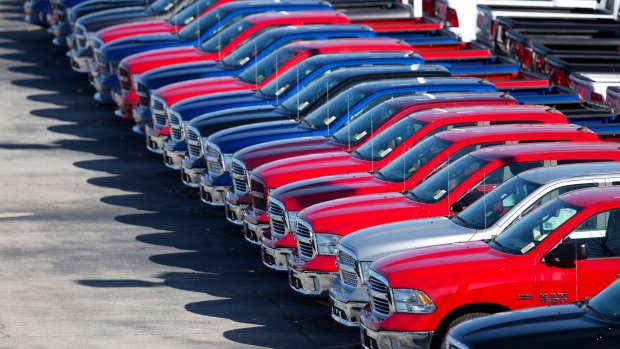Apr 18, 2017
Pattie Lovett-Reid: The true cost of owning a car

We love our cars and trucks.
According to Scotiabank, sales in Canada last month jumped 7 per cent year over year, buoyed by double digit growth gains for both light trucks and luxury models. Scotiabank said this solid performance lifted year-to-date sales to an annualized 2.1 million units – the best three-month performance on record, and well above the full-year 2016.
This may be a good thing for the industry and a good thing for investors in the auto industry. But what about the consumer?
The fact is millions of new cars are sold each year, although few buyers can afford to pay for them with cash. The simple fact is, the inability to pay for the car with cash means an inability to really afford the car.
There is a significant difference between being able to afford a car payment and being able to afford the car. Add to this the tendency to buy more car than we need, let alone can afford. The minute you drive a new car off the lot, it depreciates significantly. A statistic often quoted is the moment you drive your new car off the lot, it will lose about 11 per cent of its value. That means if you purchase a $20,000 vehicle, it will lose as much as $2,200 in value just by driving it home.
Now add to this, by borrowing money to buy a car, the consumer will pay interest on a depreciating asset. This doesn’t even take into consideration the number of Canadians who will trade in their car every couple of years resulting in the amount of money they lose compounding on every trade.
In a perfect world, you would try to go without a vehicle and possibly use public transit if it is available to you. I recognize for many that isn’t possible. Therefore, you might want to consider purchasing a used car that uses less gas – especially given the price increases we are starting to see across the country. Look for cars that cost less to insure and maintain.
Cars aren’t the only thing we tend to overspend on – we do this with homes too. Bigger homes are not necessarily better. Along with a bigger home are bigger taxes, larger insurance bills and maintenance costs. The moral of the story: big purchases can prove very costly over your lifespan. And the more we live on borrowed money, the further behind the consumer becomes and the further ahead the investor becomes.
Ask yourself this: who is making money at your expense?





